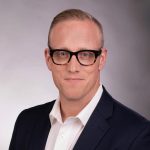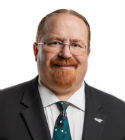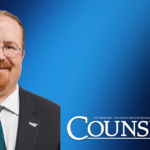Share
When Demand Overruns Supply in Addiction Treatment
Prior to January 1, 2020, the nation faced a growing opioid epidemic, rising addiction rates, and an exponential growth in deaths caused by alcohol abuse, drug overdose, and suicide, In 2017 life expectancy decreased in the United States for the third year in a row, in part, due to increases in death rates for alcohol, drugs, and suicide. According to the Centers for Disease Control and Prevention, as of June 2020, 13% of Americans reported starting or increasing substance use as a way of coping with stress or emotions related to COVID-19. Overdoses have also spiked since the onset of the pandemic. A reporting system called ODMAP shows that the early months of the pandemic brought an 18% increase nationwide in overdoses compared with those same months in 2019. The trend has continued throughout 2020, according to the American Medical Association, which reported in December that more than 40 U.S. states have seen increases in opioid-related mortality along with ongoing concerns for those with substance use disorders.
With increases in demand well documented by a mountain of studies, one would think that governments everywhere would have: 1) Planned for capacity expansion to meet this growing need, 2) Developed immediate workforce capacity expansion plans, 3) Created funding to enhance the pipeline of future professionals to meet demand, 4) Made changes in policies that would encourage entry into the profession or encourage exit from it.
In a spectacular display of stigma related to the disease of addiction and its treatment, there has not been a rush to expand capacity, address decades of old workforce shortages, or properly prepared for the tidal wave of death and destruction now washing onto the shores of California. And now, the state’s failure to understand the critical role that licensure for the profession plays in attracting and maintaining the workforce has come home to roost. We are behind; far behind in developing the resources needed to treat addiction.
In California, one voice stands alone to address this crisis – San Francisco Assemblymember David Chiu. His Assembly Bill 666 was the only bill introduced to address workforce during this catastrophic system failure. It’s $9 million spending plan hopes to create more certified counselors, attract more multi-lingual practitioners, cross-train other licensed professionals, and address the desperately high needs of LGBTQ youth with addiction. The bill is a much needed short-term capacity builder that will save lives, but when will the legislature and administration address the systemic problems that have decimated this workforce?
California’s Failure to Adopt SUD Licensure
According to the California Senate Committee on Appropriations’ analysis of SB-1101 Alcohol and drug counselors: regulation (2015-2016), “In recent years, there have been several bills proposed to license drug and alcohol counselors, including SB 570 (DeSaulnier, 2013), AB 2007 (Williams, 2012), SB 1203 (DeSaulnier, 2010), SB 707 (DeSaulnier, 2009) and others. None of those bills were enacted.” (2016). The state’s largest and most vocal advocacy organization for addiction treatment and prevention, the California Consortium of Addiction Programs and Professionals (CCAPP), has been intimately involved in this multiple-year effort to create SUD counselor licensure in California. CCAPP’s vision for SUD counselor development involves a career ladder that begins with registered SUD counselor interns and progresses through levels leading to state-issued licensure. The tiered system allows SUD counseling professionals to advance according to specific education milestones and years of experience in the profession.
CCAPP supports a tiered advancement approach because it helps protect the public by ensuring that SUD counselors advance only according to their level of education, experience, and professional competency as evidenced by nationally recognized exams. It also provides SUD counseling professionals with options to pursue their vocation, though not all SUD counselors will wish to seek the advanced education and experience needed to operate at higher certification levels or as independently licensed professionals. SUD counselors can essentially progress to the level on the career ladder where they feel they can best serve their communities. Currently, all levels of the SUD counselor career ladder are operational except for state licensure, which California has refused to adopt.
There are many nuanced reasons that SUD counselor licensure has not been created, most being rooted in the failure of the state to allocate resources to create a license program. Per the fiscal impacts section of the previously mentioned analysis of SB-1101, the initial startup costs and annual maintenance costs provided were minimal. Given the immense wealth of California, not creating licensure due to the cost is surprising. Addiction and widespread individual/community consequences are tragic. To create SUD counselor licensure in California, a new board or bureau would need to be created within the Department of Consumer Affairs (DCA). DCA oversees other state licenses at a cost to the state of roughly $750,000.00/year. Additional annual costs such as issuing licenses, processing renewals, background checks, processing complaints, etc., are estimated to be approximately 1.1 – 2.1 million dollars. Eventually the fees collected for initial licensing and renewals would likely cover the expenses. In light of the devastation caused by addiction, particularly considering the nation’s continuing opioid epidemic and California’s growing stimulant epidemic, the importance of building California’s inadequate workforce could not be more urgent. The low budget impact to the state and consequently taxpayers not adopting SUD counselor licensure is utterly nonsensical. Given the positive result of a cost/benefit analysis of California’s potential to provide SUD patients with individual practitioners early in their disease progression, there must be more to the state’s failure to adopt licensure than purely financial implications.
Why California Must Adopt SUD Counselor Licensure
There are many reasons why adopting SUD counselor licensure in California is of critical importance. But before addressing some of the most important reasons, it is important to begin by speaking to those who are currently certified SUD counselors, registered interns, or plan on entering the profession, about the inequality among helping professionals. If you are reading this as an SUD counselor, intern, or other addiction-focused professional, you may be asking, “If we already have SUD counselor certification, why do we need a license?” That is a valid question.
Currently, in California, there is only SUD counselor certification. SUD counselor certification is issued by private certifying organizations that are overseen by the California Department of Healthcare Services (DHCS). The certifications are not issued by the state itself, in part because we have always been viewed as “paraprofessionals.” Certified SUD counselors have a designated scope of practice like other behavioral health professionals but are prohibited from diagnosing clients/patients within that scope of practice because they are not licensed (though some states do afford certified SUD counselors these privileges). Only physicians, physician extenders (physician assistants, nurse practitioners), and other designated Licensed
Practitioners of the Healing Arts (LPHAs), including licensed psychologists, licensed marriage and family therapists, licensed clinical social workers, and licensed professional clinical counselors can diagnose.
By virtue of a professional holding a designated license, even having received no training, little education, and no competency testing specific to SUD, they are allowed to diagnose and treat people with SUDs. Diagnosing and treating SUDs falls within the scope of practice for many licensed professionals, although few have the competency needed to assess, diagnose and treat SUDs. I know this because I have spent the last five years providing, what I would consider entry-level, SUD educational presentations and training to LPHAs and other allied professionals in my local community and throughout large portions of California. I want to emphasize, entry-level SUD education and training, not advanced, because entry-level is where many licensed professionals are in their understanding of SUD.
The professionals that I have presented to include mental health therapists, pharmacists, physicians, nurses, law enforcement officers, public health workers, attorneys, religious leaders, child welfare social workers, and other human service professionals. The vast majority of them do not understand the disease of addiction, yet interface with populations that have SUD almost on a daily basis. I would also add that I have found that many licensed professionals don’t have an interest in or passion for this population. Stigma and misunderstanding are prevalent even among those trained to question their personal bias. Typically, mental health therapists did not go into their profession with the expectation of treating people with SUD. So, what does this mean for SUD counselors or those aspiring to become counselors?
It means that you, as the non-licensed, certified counselor who works in the treatment and recovery space, might be an expert on SUD and know far more than the LPHA that works alongside you or supervises you. Yet you cannot diagnose. while they can, and because they can, they earn a much larger salary than you. It is an ongoing frustration for many certified SUD counselors that have to train licensed co-workers, or unlicensed therapist interns on SUD only to have them make significantly higher rates of pay and sometimes even have to be supervised by them. LPHAs have to diagnose because you, as the SUD counselor, cannot, per regulation and for billing purposes. In the final analysis, from a business standpoint, not having SUD licensure makes SUD counselors less valuable within our own profession even though we have expertise and years of experience that many LPHAs do not. It also means that SUD treatment could eventually be fully placed in the hands of the aforementioned LPHAs, making SUD certification obsolete. Before you say to yourself, “That can’t happen,” realize it can, especially as SUD treatment becomes more medically focused.
Before I go any further, I want to say that there are some LPHAs that are incredibly knowledgeable about SUD and have the interest, passion, and necessary competency. Some LPHAs are certified SUD counselors first before they become licensed in a related discipline, but most do not receive SUD specific education in their respective degree programs and I would argue, based on my own experience and what other SUD focused trainers have told me, not many are passionate about working with addicted populations. The point is that none of the education programs that lead to the licensures listed above are inherently addiction-focused and many programs only include SUD-related courses as electives if they offer any at all. SUD counselor education is specific to SUDs but counselors lose out on higher pay, prestige, and professional respect by not having SUD counselor licensure available.
Someone might argue that a person who wants to diagnose should just pursue one of the licenses listed above. Well, I am all for it if that person wants to be a physician, physician extender, or mental health therapist, but many counselors who go into the profession want to work specifically with people that have SUDs. Many do not want to be licensed in another discipline. Also, many SUD counselors that seek other licensures only do so because there is no path to licensure within their discipline. They are forced to step outside of the profession to obtain some other type of licensure. I will use myself as an example. I am a certified SUD counselor. I have been in the profession for over 10 years. I have a Master’s Degree in Addiction Counseling from a regionally accredited university located in a state that has SUD licensure. I had to go out of state to even get the degree. Since SUD counselor licensure does not exist in California, universities and colleges here are not incentivized to create bachelor and master’s programs in addiction studies. In addition to my years in the profession; earning a graduate degree in my discipline; working as a community SUD trainer and treatment program auditor; having served as the Board President of CCAPP; surviving 20 years spent in the hell of my own addiction; and 15 years of personal recovery, I still cannot diagnose clients/patients. However, a licensed professional that I may have trained with no formal education related to SUD can. What I find even more frustrating is that LPHAs in related helping professions are enthusiastic to have me or others like me teach and train them because they know they lack the knowledge and competency, but historically, many of the professional organizations that advocate and support the LPHAs that I have trained are organizations that have actively opposed CCAPP’s efforts for obtaining SUD licensure. I know that there are other certified SUD counselors with high levels of education that can relate to my frustration. Though I am a strong proponent of professional equality in the helping professions, professional equality is not even the most important argument for SUD counselor licensure.
Work Force Shortage
For many years there has been a very real workforce shortage problem in the SUD counseling profession. Many people that go into this profession are in recovery themselves or have been impacted personally by a person that has a SUD. They have a passion for it because they are connected to it personally. Few people outside the recovery community choose this as their life’s work. This means that the SUD counseling interest pool is small to begin with. SUD counseling, rewarding as it is, tends to be a high burnout profession in general. Typically, SUD counselors do not make a lot of money and there is no pathway to licensure in the profession they are passionate about, so they leave. They leave SUD counseling for other related professions or they leave for other types of work out of financial necessity and/or burnout. This has a huge impact on the workforce because the prevalence of SUD in society is growing, especially in this season with the pandemic and social unrest. To make matters worse, older, more experienced SUD counselors are retiring. This means there will be less quality mentorship and coaching for incoming counselors and there will not be enough new counselors entering the profession to replace those who are retiring. With low pay; high stress; and no pathway to licensure in their profession, why would people stay? Passion and care for others are powerful motivators, but it cannot pay bills. Licensure would lead to higher pay, greater mobility to help avoid burnout, and the pursuit of professional licensure would likely keep people tied to the profession in pursuit of that goal.
You would think that California would consider it worth spending a few million dollars for initial startup and annual costs for new licensure that could help free mental health therapists do what they went into their professions to do, which is mental health therapy, which also has a shortage of qualified therapists. Additionally, SUD cases and overdoses are growing; there is an opioid crisis (and a burgeoning stimulant crisis); experienced people are leaving the profession and not enough new counselors are replacing them; there are few addiction studies programs available in California; low SUD competency and passion levels for many LPHAs and not enough of them to fill the need. I would call that a crisis, but there is one more important thing to point out.
Currently, California is a pilot state for SUD treatment expansion in the public sector under the 1115 or ODS – Waiver. SUD treatment under Medi-Cal has shifted to a true medical model under this pilot program and is currently funding treatment levels of care and services not previously covered or even available under the prior design. Counties that opted into the pilot program, “Waiver Counties,” are expected to ensure network adequacy. The expansion of programs and services is preferable, but at the very least, counties were required to create and maintain a certain level of services based on estimates of the population that have a SUD in the Medi-Cal eligible population. Network adequacy generally refers to programs and services, but it is contingent upon having qualified staff necessary to deliver the services within the program. While DHCS cannot advocate one way or another for or against licensure, it should be logical for it to see that requiring network adequacy from counties that face impossible workforce shortages can only lead to failure for the Drug Med-Cal Organized Delivery System now being held out as a national success.
Public Safety
While much of this article has been focused on professional equality and workforce issues, there is an even more important reason to adopt SUD licensure; public safety. As stated, LPHAs are often not properly trained in SUD-specific competencies and best practices, which can pose a safety risk to the public. However, there are other public safety concerns that people are unaware of. For example, many people are unaware that many outpatient programs and those conducting SUD-focused private practice are unregulated. Anyone can open an outpatient program or private practice and offer services for cash to the public. People providing these services do not have to be licensed or certified. Outpatient programs are not mandated to be certified (regulated) by the state. DHCS only oversees SUD counselors working in programs which are licensed (inpatient) or who agree to become voluntarily certified (outpatient) in order to receive county funding.
You would think the public would be terrified given: the debilitating and potentially life-threatening nature of SUDs; the vulnerability of the population; and the skill and competency needed to be a SUD-focused professional. Certified SUD counselors may privately practice without a license. Certified SUD Counselors are allowed to do this as long as they inform clients that their certification is not a state license. If they are certified with CCAPP, the public does have some level of protection because CCAPP has its own ethics committee that investigates complaints. CCAPP also has the authority to sanction counselors for ethical violations up to termination of a credential, but if someone is uncertified there is no oversight. That being said, certification requires that the consumer understands and can access certification lists and ethics statuses for counselors which is highly unlikely.
For many years, people outside, and some inside of the SUD profession, have been outraged that certified SUD counselors are allowed to practice privately without a license. Often, the lack of license is not the main complaint. It is that certified counselors are viewed as paraprofessionals and not considered on par with LPHAs. One of the strongest arguments against the creation of SUD licensure has been the perception that SUD counselors only possess a low level of education (this is not always the case). To become licensed as a mental health therapist, for example, aspiring licensees must obtain a master’s degree from an accepted university that includes specific course work and practicum hours during their degree program. It also includes the accumulation of a larger amount of practicum hours as an intern therapist post-graduation, and the passing of state exams. SUD counselor certification requires all the same components with the exception of a mandatory master’s degree.
The argument against SUD licensure has been, “Why should SUD licensure be granted to individuals who did not obtain a master’s degree specific to addiction or at least in a related field?” It is a strong argument and one that I sympathize with. However, I think people forget that the scope of practice is limited for SUDs and would not require a long graduate program. The argument is valid and one of professional equality. We, as the addiction profession, cannot educate the public about the complexity and potentially life-threatening nature of SUD and then say that vocational SUD training, with no advanced education, is enough to justify licensure that would allow us to operate independently.
When SUD counselor certification (then referred to as alcohol and drug counseling certification) first began decades ago, there were a lot of ideas about the causes of addiction, but not a lot of valid research. It was not until fairly recently that substance addiction was accepted as a brain disease. Some in the profession are still unconvinced, even in the face of mounting scientific research, which is disturbing, but that is another article. The point is that the addiction treatment community grew up in isolation away from the other helping disciplines early on due to stigma. Nobody wanted to deal with “addicts and alcoholics” so they embraced more spiritual solutions which proved effective for many, but not all. Spiritual 12-step programs eventually morphed into social model treatment. While the treatment and recovery communities have retained many of its early characteristics, SUD treatment has moved to a medical model of treatment that is grounded in scientific research and evidence-based practices. These changes significantly raise the required competency levels needed to be an effective SUD counselor in the new treatment environment, especially if we wish to operate as state-licensed SUD treatment professionals. Since the research on addiction has made significant advancements, increasing our understanding enough to justify graduate-level addiction studies programs that are increasingly springing up nationwide, there is no reason why a master’s degree should not be required for SUD licensure in any state including California.
To be clear, the idea is not to replace certification with state licensure. As I mentioned earlier in the article, SUD licensure should only be required for the SUD counselor who wishes to practice independently, or who would like to be able to diagnose in the programs in which they work. Various levels of certification which are based on education level and experience should remain available on the SUD counselor career ladder. The various certification levels on the career ladder would serve two main purposes: 1) It provides a space for everyone who wishes to work as a SUD counselor to do so in accordance with their education and experience; 2) To allow SUD counselors to work and progress on the career ladder as they pursue state SUD licensure. No other related, licensed profession that I can think of has a career ladder like this available. It provides excellent opportunity for advancement while elevating public safety in the process.
For certified counselors who are doing private practice in California, the current draft of CCAPP’s licensure bill includes special fairness protections that would grant an exemption from the license requirement. This would allow those who are already practicing to continue practicing for ten years during which time they will be monitored by the licensing authority as they work to meet the educational requirements. To recap, SUD licensure does not replace certification, it creates a path for higher pay within our discipline. Language in the bill provides a cushion for certified counselors to continue in private practice as they work to achieve the educational requirement of licensure. Nobody gets left out, and the public, as well as our profession, is protected.
Some of the Underlying Reasons Why SUD Licensure Has Not Been Adopted
Given all the benefits of SUD licensure, as it relates to professional equality, the strengthening of the workforce, public protection, and with minimal cost to the taxpayer, the reader may be wondering why California has not adopted it. We all should be wondering why it has not been adopted. To be blunt, I strongly suspect that the reasons primarily revolve around professional competition and governmental preference rooted in stigma, coupled with professional snobbery and money. Let me clarify what I mean by governmental preference. Years ago, when SUD counseling began, the state allowed private certifying organizations to oversee and manage it.
The state provided oversight of the private certifying organizations (CCAPP, CAADE, and CADTP). Early on, the state agency that regulated the private certifying organizations was the Department of Alcohol and Drug Programs. This department also regulated many of the alcohol and drug treatment programs in which certified counselors were employed. This department was eventually dissolved and its responsibilities were transferred to the DHCS. SUD counselor certifying organization oversight and treatment program certification, licensure, and monitoring responsibilities are currently under DHCS.
In looking at other certified and licensed professions, it seems highly irregular for a governmental body like DHCS to oversee SUD counselor certification in the first place, a situation they inherited when then-Governor Brown, eliminated the Department of Alcohol and Drug Programs. DHCS is the same organization that oversees the 1115 (ODS) Waiver pilot program for Drug Medi-Cal expansion. And with the proposed Cal-AIM program, SUD and mental health services are slated for greater and greater “integration.” Is DHCS aligned to encourage licensed mental health therapists to take over all clinical responsibilities of SUD treatment eventually? It’s worth considering, especially since many SUD counselors are in recovery and people in recovery experience high levels of stigma and even professional abuse working amongst other licensed helping professionals. Is there underlying bias toward our profession that could be impacting regulation in general?
In addition to lack of support from former governors, SUD licensure has also been hindered through active resistance by other professional advocacy organizations. Many of these organizations represent the LPHAs listed earlier in the article. Being licensed to diagnose and treat people with SUD, of course, comes with an ability to bill for these services. SUD licensure would create competition for them. Marriage and family therapists and licensed clinical counselors met similar resistance from established LPHAs when they were up and coming but not in the same way that SUD counselor licensure has met resistance. The perception that SUD counselors do not have enough education persists. They are still viewed as paraprofessionals by many. In the beginning stages of the SUD counseling profession that is what they were, but since that time the profession has developed. Many SUD counselors possess higher education levels, including advanced degrees. Addiction science has advanced such that medical associations that specialize in addiction now exist. The American Society of Addiction Medicine (ASAM) has extended associate membership to addiction-focused professionals who possess certain graduate degrees along with certification. The perception that SUD counselors are collectively undereducated paraprofessionals is patently false, which is why several professional advocacy groups that once opposed licensure are now actively supporting our efforts.
In the US, there is a lot of social change taking place. Change is taking place because people that have been historically labeled, marginalized, abused, and intentionally oppressed refused to continue to accept the status quo. People are raising their voices together and refusing to take “no” for an answer. It is not a time for SUD-focused professionals to accept the things they think they cannot change, but rather work to change the things they cannot accept. Historically, individuals with SUDs have been treated with contempt, and while it may not be as blatant as it has been in the past, contempt can present in other forms, including professional exclusion. People who dedicate their lives to this profession deserve the opportunity to pursue licensure in their chosen discipline; licensure that will allow for the same level of professional autonomy afforded to other licensed professionals. More importantly, California residents deserve adequately staffed, safe, and competent care. This year, 2021, is a turning point and I hope that all who read this article will support CCAPP’s efforts to call on California to adopt SUD counselor licensure.
References:
Realignment, Incarceration, and Crime Trends in California. (2019, May 15). Retrieved January21, 2021, from https://www.ppic.org/publication/realignment-incarcerationandcrimetrends-in-california/
CA SB-1011 Bill Analysis, (2016, May 15). Retrieved January 21, 2021, from leginfo.legislature.ca.gov/faces/billAnalysisClient.xhtml?bill_id=201520160SB1101.
About Me
Michael Prichard M.S., LAADC, ICAADC, currently serves as Vice Chair and Legislative Chair for the California Consortium of Addiction Programs and Professionals (CCAPP). He holds a master’s of science in addiction counseling, is a Staff Analyst in SUD Prevention for Fresno County Department of Behavioral Health, and is contracted trainer for Central California Training Academy through California State University, Fresno Foundation.
Pete Nielsen is the President & Chief Executive Officer for the California Consortium of Addiction Programs and Professionals (CCAPP), CCAPP Credentialing, CCAPP Education Institute, and the National Behavioral Health Association of Providers (NBHAP). CCAPP is the largest statewide consortium of addiction programs and professionals, and the only one representing all modalities of substance use disorder treatment programs. NBHAP is the leading and unifying voice of addiction-focused treatment programs nationally. Mr. Nielsen has worked in the substance use disorders field for 20 years. In addition to association management, he brings to the table experience as an interventionist, family recovery specialist, counselor, administrator, and educator, with positions including campus director, academic dean, and instructor.
Mr. Nielsen is the secretary of the International Certification and Reciprocity Consortium and the publisher for Counselor magazine. He is a nationally known speaker and writer published in numerous industry-specific magazines. Mr. Nielsen holds a Master of Science in Counseling Psychology and a Bachelor of Science in Business Management.











 Counselor Magazine is the official publication of the California Association of Addiction Programs and Professionals (CCAPP). Counselor offers online continuing education, article archives, subscription deals, and article submission guidelines. It has been serving the addiction field for more than thirty years.
Counselor Magazine is the official publication of the California Association of Addiction Programs and Professionals (CCAPP). Counselor offers online continuing education, article archives, subscription deals, and article submission guidelines. It has been serving the addiction field for more than thirty years.